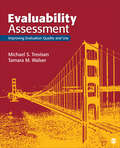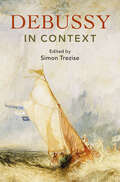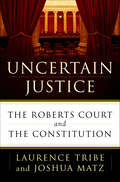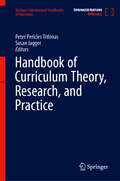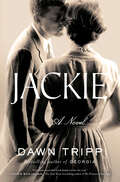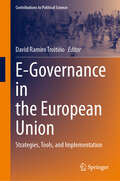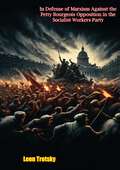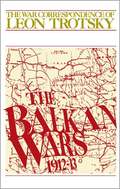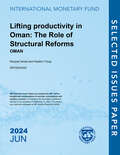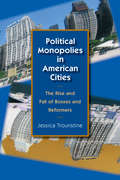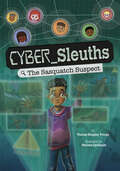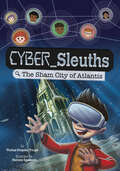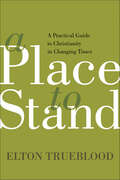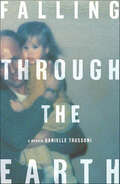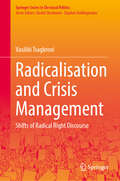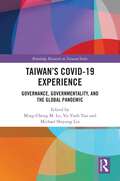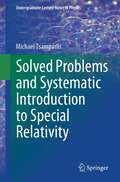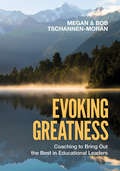- Table View
- List View
Evaluability Assessment: Improving Evaluation Quality and Use
by Michael S. Trevisan Tamara M. WalserEvaluability assessment (EA) can lead to development of sound program theory, increased stakeholder involvement and empowerment, better understanding of program culture and context, enhanced collaboration and communication, process and findings use, and organizational learning and evaluation capacity building. This book provides an up-to-date treatment of EA, clarifies what it actually is and how it can be used, demonstrates EA as an approach to evaluative inquiry with multidisciplinary and global appeal, and identifies and describes the purposes and benefits to using EA. Using case examples contributed by EA practitioners, the text illustrates important features of EA use, and showcases how EA is used in a variety of disciplines and evaluation contexts. This text is appropriate as an instructional text for graduate level evaluation courses and training, and as a resource for evaluation practitioners, policymakers, funding agencies, and professional training.
Evaluability Assessment: Improving Evaluation Quality and Use
by Michael S. Trevisan Tamara M. WalserEvaluability assessment (EA) can lead to development of sound program theory, increased stakeholder involvement and empowerment, better understanding of program culture and context, enhanced collaboration and communication, process and findings use, and organizational learning and evaluation capacity building. This book provides an up-to-date treatment of EA, clarifies what it actually is and how it can be used, demonstrates EA as an approach to evaluative inquiry with multidisciplinary and global appeal, and identifies and describes the purposes and benefits to using EA. Using case examples contributed by EA practitioners, the text illustrates important features of EA use, and showcases how EA is used in a variety of disciplines and evaluation contexts. This text is appropriate as an instructional text for graduate level evaluation courses and training, and as a resource for evaluation practitioners, policymakers, funding agencies, and professional training.
Debussy in Context (Composers in Context)
by Simon TreziseExploring the many dimensions of Debussy's historical significance, this volume provides new perspectives on the life and work of a much-loved composer and considers how social and political contexts shape the way we approach and perform his works today. In short, focused chapters building on recent research, contributors chart the influences, relationships and performances that shaped Debussy's creativity, and the ways he negotiated the complex social and professional networks of music, literature, art, and performance (on and off the stage) in Belle Époque Paris. It probes Debussy's relationship with some of the most influential '-isms' of his time, including his fascination with early music and with the 'exotic', and assesses his status as a pioneer of musical modernism and his continuing popularity with performers and listeners alike.
Uncertain Justice: The Roberts Court and the Constitution
by Laurence Tribe Joshua MatzHarvard Law School scholars Laurence Tribe and Joshua Matz reveal how Chief Justice John Roberts is shaking the foundation of our nation’s laws in Uncertain Justice: The Roberts Court and the Constitution.From Citizens United to its momentous rulings regarding Obamacare and gay marriage, the Supreme Court under Chief Justice John Roberts has profoundly affected American life. Yet the court remains a mysterious institution, and the motivations of the nine men and women who serve for life are often obscure. Now, in Uncertain Justice, Laurence Tribe and Joshua Matz show the surprising extent to which the Roberts Court is revising the meaning of our Constitution.Political gridlock, cultural change, and technological progress mean that the court’s decisions on key topics—including free speech, privacy, voting rights, and presidential power—could be uniquely durable. Acutely aware of their opportunity, the justices are rewriting critical aspects of constitutional law and redrawing the ground rules of American government. Tribe—one of the country’s leading constitutional lawyers—and Matz dig deeply into the court’s rulings, stepping beyond tired debates over judicial “activism” to draw out hidden meanings and silent battles. The undercurrents they reveal suggest a strikingly different vision for the future of our country, one that is sure to be hotly debated.Filled with original insights and compelling human stories, Uncertain Justice illuminates the most colorful story of all—how the Supreme Court and the Constitution frame the way we live.“Marvelous…Tribe and Matz’s insights are illuminating…. [They] offer well-crafted overviews of key cases decided by the Roberts Court … [and] chart the Supreme Court’s conservative path, clarifying complex cases in accessible terms.”—The Chicago Tribune“Well-written and highly readable…The strength of the book is its painstaking explanation of all sides of the critical cases, giving full voice and weight to conservative and liberal views alike.”—The Washington Post
Handbook of Curriculum Theory, Research, and Practice (Springer International Handbooks of Education)
by Peter Pericles Trifonas Susan JaggerThis Handbook paints a portrait of what the international field of curriculum entails in theory, research and practice. It represents the field accurately and comprehensively by preserving the individual voices of curriculum theorist, researchers and practitioners in relation to the ideas, rules, and principles that have evolved out of the history of curriculum as theory, research and practice dealing with specific and general issues. Due to its approach to both specific and general curriculum issues, the chapters in this volume vary with respect to scope. Some engage the purposes and politics of schooling in general. Others focus on particular topics such as evaluation, the use of instructional objectives, or curriculum integration. They illustrate recurrent themes and historical antecedents and the curricular debates arising from and grounded in epistemological traditions. Furthermore, the issues raised in the handbook cut across a variety of subject areas and levels of educationand how curricular research and practice have developed over time. This includes the epistemological foundations of dominant ideas in the field around theory, research and practice that have led to marginalization based on race, class, gender, sexuality, ethnicity, age, religion, and ability. The book argues that basic curriculum issues extend well beyond schooling to include the concerns of anyone interested in how people come to acquire the knowledge, skills, and values that they do in relation to subjectivity and experience.
Code Kakori: कोड काकोरी
by Manoj Rajan Tripathiइस कहानी का बीज मेरे सामने बोया गया था और आज कहानी फसल बन कर लहलहा रही है, CODE काकोरी को दिल से मुबारकबाद - साजिद नाडियाडवाला। काकोरी अस्पताल के वॉर्ड में एक डेड बॉडी पड़ी है, जो पूरी तरह काली पड़ चुकी है। लाश पर सोने-चांदी के ब्रिटिश कॉइंस पड़े हैं। हर सिक्के पर क्वीन विक्टोरिया की तस्वीर छपी है। क़ातिल ने लाश के सीने पर पीतल की थंब पिन से एक ए फोर साइज़ का कागज़ टैग किया है, जिस पर लिखा है—हिंदुस्तान रिपब्लिकन एसोसिएशन। आख़िर क़ातिल का इशारा क्या है? क्यों छोड़े हैं उसने ये सुराग़? पुलिस को क्यों चैलेंज कर रहा है ये क़ातिल? असल में ये वही विक्टोरियन कॉइंस हैं, जो 1925 के ‘काकोरी कांड’ में लूटे गए थे। ये वही हिंदुस्तान रिपब्लिकन एसोसिएशन है जो 1924 में चंद्रशेखर आज़ाद ने बनाई थी। तब मक़सद था ब्रिटिश हुकूमत के ख़िलाफ़ बारूदी जंग छेड़ना, और बारूद उगलने वाले हथियार ख़रीदने के लिये 9 अगस्त 1925 को ट्रेन रोककर काकोरी में ही लूटा गया, अंग्रेज़ों का खज़ाना। लेकिन चौरानवे साल बाद अब क्या मक़सद है? अब क्या इरादा है? किसके ख़िलाफ़ है ये जंग? अब कौन है जिसने बनाया है ‘कोड काकोरी’? मनोज राजन त्रिपाठी के इस उपन्यास में थ्रिल है, सस्पेंस है, एक्शन है, कॉमेडी है, ड्रामा है; कहने का मतलब, एक पूरी फ़िल्म का मज़ा है।
Jackie: A Novel
by Dawn TrippIn this mesmerizing novel about Jacqueline Kennedy Onassis, acclaimed author Dawn Tripp has crafted an intimate story of love and power, family and tragedy, loss and reinvention. &“A brilliant, beautiful book [that] touches the soul.&”—Chris Bohjalian, New York Times bestselling author of The Princess of Las VegasThe world has divided my life into three:Life with JackLife with OnassisLife as a woman who goes to work because she wants to.My life is all of these things, and it is none of these things. They continue to miss what&’s right in front of them. I love books. I love the sea. I love horses. Children. Art. Ideas. History. Beauty. Because beauty blows us open to wonder.Even the beauty that breaks your heart.Jackie is the story of a woman—deeply private with a nuanced, formidable intellect—who forged a legacy out of grief and shaped history even as she was living it. It is the story of a love affair, a complicated marriage, and the fracturing of identity that comes in the wake of unthinkable violence.When Jackie meets the charismatic congressman Jack Kennedy in Georgetown, she is twenty-one and dreaming of France. She has won an internship at Vogue. Kennedy, she thinks, is not her kind of adventure: &“Too American. Too good-looking. Too boy.&” Yet she is drawn to his mind, his humor, his drive. The chemistry between them ignites. During the White House years, the love between two independent people deepens. Then, a motorcade in Dallas: &“Three and a half seconds—that&’s all it was—a slivered instant between the first shot, which missed the car, and the second, which did not. . . . A hypnotic burst of sunlight off her bracelet as she waved.&”This vivid, exquisitely written novel is at once a captivating work of the imagination and a window into the world of a woman who led many lives: Jackie, Jacks, Jacqueline, Miss Bouvier, Mrs. Kennedy, Jackie O.
E-Governance in the European Union: Strategies, Tools, and Implementation (Contributions to Political Science)
by David Ramiro TroitiñoThis book sheds new light on the future of e-governance in the European Union (EU). Drawing on the first-hand professional experience of practitioners, policymakers, and institutional stakeholders, combined with a sound academic foundation, it offers insights into successful implementation strategies and new tools necessary for efficient e-governance in the European Union. The authors present key topics, e.g. the development of e-services such as e-identity, e-health, e-democracy, as well as e-governance tools for the correct implementation of the Digital Single Market. Furthermore, they discuss the legal framework needed for the implementation of these services, such as data protection, digital competition law, as well as EU contracts in digital environments. Finally, the authors highlight efforts to include ethical standards and European values in the decision-making, while developing a vision for the future use of e-governance in the European Union.Understanding the tools and strategies for a successful implementation of e-governance services, as well as the necessary legal framework, will allow professionals such as policymakers and institutional stakeholders, to improve their performance and achieve better results when working on the development of future e-governance services in the European Union.
In Defense of Marxism Against the Petty Bourgeois Opposition in the Socialist Workers Party [Original 1942 edition]
by Leon Trotsky James BurnhamThis seminal work by Leon Trotsky that captures the fierce ideological battles within the Socialist Workers Party (SWP) in the late 1930s and early 1940s. Written by one of the foremost leaders of the Russian Revolution and a key figure in the development of Marxist theory, this book is an impassioned defense of Marxist principles against what Trotsky perceived as deviations and betrayals within the party.Trotsky's work is a response to the internal conflicts that arose within the SWP, particularly focusing on the opposition led by James Burnham and Max Shachtman. He critiques their positions, which he argues represent a petty-bourgeois deviation from orthodox Marxism. Through a series of essays and letters, Trotsky systematically dismantles their arguments, defending the necessity of a disciplined, proletarian-led revolutionary party committed to Marxist doctrine.The book delves into key issues such as the nature of the Soviet Union, the role of the party, and the dangers of bureaucratic and reformist tendencies. Trotsky argues for the importance of maintaining a clear and unwavering commitment to Marxist principles in the face of internal and external pressures."In Defense of Marxism" is not just a historical document; it is a powerful exposition of Trotsky's vision of socialism and his critique of those who he believed were undermining the revolutionary cause. His writing is marked by clarity, passion, and a profound understanding of the dynamics of revolutionary struggle.This work is essential reading for anyone interested in Marxist theory, the history of the socialist movement, and the internal dynamics of revolutionary parties. Trotsky's "In Defense of Marxism" offers valuable insights into the challenges of maintaining ideological purity and unity within a revolutionary movement, making it a timeless contribution to socialist literature.
The Balkan Wars (1912-13): The War Correspondence Of Leon Trotsky
by Leon Trotsky George Lavan WeissmanOn-the-spot analysis of national and social conflicts in the Balkans, written 80 years ago, sheds light on the conflicts shaking these countries today. Photos, maps, chronology, glossary, index.
Digital Media, Denunciation and Shaming: The Court of Public Opinion (Routledge Focus on Communication and Society)
by Daniel Trottier Rashid Gabdulhakov Qian HuangThis book offers a common set of concepts to help make sense of online shaming practices, accounting for instances of discrimination and injury that morally divide readers and at times risk unjust and disproportionate harm to those under scrutiny.Digital media denunciation has become a primary form of expression and entertainment across media environments, with new socially desirable forms of accountability under movements such as #MeToo and #BlackLivesMatter addressing longstanding forms of systematic and interpersonal abuse. Building on recent scholarship on shaming, surveillance and denunciation in fixed contexts, this study generates a cross-contextual and multi-actor account of practices like ‘cancel culture’, ‘doxing’ and ‘status degradation ceremonies’. It addresses instances of moral ambivalence by discussing how digital shaming becomes normalised and embedded across socio-cultural and institutional settings. The authors establish key actors and practices in online denunciations of individuals in a range of cases and contexts, including responses to COVID-19, political polarisation, and social justice movements, as well as more local and quotidian circumstances. They draw from empirical data including interviews with nearly 100 individuals targeted by mediated shaming and/or involved in these practices, as well as ethnographic observations of digital vigilantism and discourse analysis of press coverage and online comments relating to online shaming. Diverse applications and contexts, including China, the UK, Russia, and Central Asia, are considered, advancing an ambivalent understanding of media and denunciation that reconciles progressive and regressive practices, as well as celebratory and critical accounts of these practices.This book is recommended reading for advanced students and researchers of online visibility and harm across media studies, cultural studies and sociology.
Lifting productivity in Oman: The Role of Structural Reforms
by TrougA report from the International Monetary Fund.
Political Monopolies in American Cities: The Rise and Fall of Bosses and Reformers
by Jessica TrounstineAround the same time that Richard J. Daley governed Chicago, greasing the wheels of his notorious political machine during a tenure that lasted from 1955 to his death in 1976, Anthony “Dutch” Hamann’s “reform” government centralized authority to similar effect in San Jose. In light of their equally exclusive governing arrangements—a similarity that seems to defy their reputations—Jessica Trounstine asks whether so-called bosses and reformers are more alike than we might have realized. Situating her in-depth studies of Chicago and San Jose in the broad context of data drawn from more than 240 cities over the course of a century, she finds that the answer—a resounding yes—illuminates the nature of political power. Both political machines and reform governments, she reveals, bias the system in favor of incumbents, effectively establishing monopolies that free governing coalitions from dependence on the support of their broader communities. Ironically, Trounstine goes on to show, the resulting loss of democratic responsiveness eventually mobilizes residents to vote monopolistic regimes out of office. Envisioning an alternative future for American cities, Trounstine concludes by suggesting solutions designed to free urban politics from this damaging cycle.
The Sasquatch Suspect (Cyber Sleuths Ser.)
by Thomas Kingsley Troupe Mariano EpelbaumA young boy investigates online claims of Bigfoot sightings in this installment of the Cyber Sleuths chapter book series. Young sleuth Cliff Ringold is a fan of legendary cryptid creatures. When a local resort posts “evidence” of Bigfoot, he sets out to verify their farfetched claims. Can Cliff trust what he sees on social media, or will he have to track down the real-life sasquatch for himself? Follow along as Cliff enlists the help of other mystery-solving kids—the Cyber Sleuths—to uncover the truth. Created in partnership with the International Society for Technology in Education (ISTE), this action-packed chapter book is perfect for young readers and demonstrates valuable media literacy skills. Books in This Series: The Lip-Sync Scandal The Sasquatch Suspect The Sham City of Atlantis The Super Berries Scam
The Sham City of Atlantis (Cyber Sleuths Ser.)
by Thomas Kingsley Troupe Mariano EpelbaumA young boy investigates an online claim about the lost city of Atlantis in this installment of the Cyber Sleuths chapter book series. Nick Pendleton’s favorite online star, Griff Willis, is lighting up the internet. In a series of social media posts, the star claims to have discovered the lost city of Atlantis! Has the star actually located one of the world’s greatest mysteries, or are his claims another epic myth? Follow along as Nick enlists the help of other mystery-solving kids—the Cyber Sleuths—to uncover the whole truth. Created in partnership with the International Society for Technology in Education (ISTE), this action-packed chapter book is perfect for young readers and demonstrates valuable media literacy skills. Books in This Series: The Lip-Sync Scandal The Sasquatch Suspect The Sham City of Atlantis The Super Berries Scam
A Place to Stand: A Practical Guide to Christianity in Changing Times
by Elton TruebloodA Place to Stand is addressed to those who recognize the need for a strong stand from which to operate in the confusion of contemporary thought. Ours has become an age, says Trueblood, in which people simply do not know what to think. Trueblood is convinced that there is an objective truth about everything. Here, Trueblood explains what Christians believe and why, exploring through each chapter rational Christianity, a center of certitude, the living God, the reality of prayer, and the life everlasting. He is convinced that part of the weakness of the Christian movement in this age has been the relative lack of emphasis upon belief. However good and important service to humanity is, it loses its motivating power when the sustaining beliefs are allowed to wither. A Place to Stand is a classic text that shows it is possible, without contradiction or confusion, to hold a Christian position which is both evangelical and rational.
Falling Through the Earth: A Memoir
by Danielle TrussoniOne of the New York Times Book Review's 10 Best Books of the YearNew York Times bestselling author Danielle Trussoni's unforgettable memoir of her wild and haunted father, a man whose war never really ended.From her charismatic father, Danielle Trussoni learned how to rock and roll, outrun the police, and never shy away from a fight. Spending hour upon hour trailing him around the bars and honky-tonks of La Crosse, Wisconsin, young Danielle grew up fascinated by stories of her dad's adventures as a tunnel rat in Vietnam, where he'd risked his life crawling head first into narrow passageways to search for American POWs.A vivid and poignant portrait of a daughter's relationship with her father, this funny, heartbreaking, and beautifully written memoir, Falling Through the Earth, "makes plain that the horror of war doesn't end in the trenches" (Vanity Fair).
Project Identification: Capturing Great Ideas to Dramatically Improve Your Organization
by Jr., Charles TryonOrganizations of every type struggle to remain relevant in their marketplace. They continuously strive to introduce new products and services at a rate that satisfies their customers. In their search for fresh ideas, organizations often overlook the most significant source of new thought- their employees. Today's employees are knowledgeable and able to see opportunities or solutions to problems. This book describes a process for turning great ideas into actionable proposals. It presents a simple, but powerful set of questions that has proven to deliver a never-ending stream of inspiration to an organization.
Radicalisation and Crisis Management: Shifts of Radical Right Discourse (Springer Series in Electoral Politics)
by Vasiliki TsagkroniThis book discusses theories of crisis management and the radical right, to shed light on how responses to crisis influence radical right parties in their presence, discourse, and evolution. The book offers a comparative perspective by examining case studies with various traditions of radical right actors, presenting data on how crisis exploitation can assist in exploring, reconsidering, bargaining, and learning about the prospects of change of political parties. The book focuses on the debate on radicalization and crisis management. Similar to the already existing economic, political, post-Brexit, and migration crises in Europe, discourses of fear around the latest health crisis are paving the way for further radicalised discourse from the far right. The book looks into how radical right parties in Europe have responded to these crises. It monitors and explores how crisis exploitation impacts political strategies, opportunity-seeking behaviours, and the evolution of the discourse of radical right parties in the contemporary political landscape. Therefore, this book is a must-read for researchers, students, and policy-makers, interested in a better understanding of populism, radical right parties, electoral studies, as well as comparative politics in general.
Taiwan’s COVID-19 Experience: Governance, Governmentality, and the Global Pandemic (Routledge Research on Taiwan Series)
by Yu-Yueh Tsai Michael Shiyung LiuThis book explores and develops the ongoing conversation about how Taiwan navigated through the COVID-19 pandemic.Emphasizing the themes of governance and governmentality, it moves the foci of the discussion from COVID policies to the social and political orders undergirding the statecraft of pandemic management. Furthermore, it analyzes how the pandemic fostered a historical moment at which new forms of governance and governmentality were beginning to take root. It also situates Taiwan’s precarious nationhood in its global context, thereby challenging a prevalent methodological nationalism – the assumption that the nation is a natural unit of analysis whose borders are more or less unquestioned – and contributing to decolonizing Western theories with perspectives from the Global South.Presenting rich original materials on the legal and public debates, individual reflections, and grassroots campaigns during COVID, this book will be essential reading for students and scholars of Taiwan's governance and social health policy, as well as medical anthropology and sociology.
Solved Problems and Systematic Introduction to Special Relativity (Undergraduate Lecture Notes in Physics)
by Michael TsamparlisIn most undergraduate physics classes Special Relativity is taught from a simplistic point of view using Newtonian concepts rather than the relativistic way of thinking. This results in students often finding it difficult to understand properly the new approach/new ideas, and consequently to solve relativistic problems. Furthermore, a number of books treat the theory using advanced mathematics which is not necessary for the first approach to the theory. This book is intended to serve two roles: a. To treat a student in a systematic constructive way to the basic structure of the theory and b. To provide a large number of solved in-detail problems in the kinematics and dynamics of Special Relativity. Concerning the first aim the book introduces the basics of four-dimensional mathematics, i.e., Lorentz metric, relativistic tensors, and prepares, through working examples, the transition to General Relativity, which requires, besides the relativistic concepts, the use of Differential Geometry and tensor analysis. The presentation is concise and does not replace a book on Special Relativity. Concerning the second intention the large number of problems provides the necessary material which can be used in order to familiarize the student with the relativistic “world”. These problems can be used in the class by the teachers either as working examples or as problem sheets. It will be our pleasure if the book will be useful to both students and teachers.
Evocative Coaching: Transforming Schools One Conversation at a Time
by Megan Tschannen-Moran Robert K. Tschannen-MoranCultivate emotional intelligence and eliminate barriers to coaching success Challenging times demand we change how we teach, and research shows that coaching is the best way to bring about robust change in instructional practice. The second edition of Evocative Coaching helps skillful coaches develop trust and unearth the values and fears that both motivate and block teachers from achieving all that they hope. Using the LEAD (listen, emphasize, appreciate, and design) process, Evocative Coaches take a partnership role, ask questions, and co-create designs. This person-centered, no-fault, strengths-based model is grounded in adult learning theory and positive psychology and emphasizes the emotional intelligence needed to establish trust. The hands-on guide for coaching practitioners works with other coaching models and · is grounded in extensive research · includes real-life vignettes and sample dialogues that bring important principles to life · provides tools designed to invite reflection and help coaches continuously improve With evocative coaching, educators can rise to new heights of ambition and ability and discover new solutions to the complex challenges they face.
Evocative Coaching: Transforming Schools One Conversation at a Time
by Megan Tschannen-Moran Robert K. Tschannen-MoranCultivate emotional intelligence and eliminate barriers to coaching success Challenging times demand we change how we teach, and research shows that coaching is the best way to bring about robust change in instructional practice. The second edition of Evocative Coaching helps skillful coaches develop trust and unearth the values and fears that both motivate and block teachers from achieving all that they hope. Using the LEAD (listen, emphasize, appreciate, and design) process, Evocative Coaches take a partnership role, ask questions, and co-create designs. This person-centered, no-fault, strengths-based model is grounded in adult learning theory and positive psychology and emphasizes the emotional intelligence needed to establish trust. The hands-on guide for coaching practitioners works with other coaching models and · is grounded in extensive research · includes real-life vignettes and sample dialogues that bring important principles to life · provides tools designed to invite reflection and help coaches continuously improve With evocative coaching, educators can rise to new heights of ambition and ability and discover new solutions to the complex challenges they face.
Evoking Greatness: Coaching to Bring Out the Best in Educational Leaders
by Megan Tschannen-Moran Robert K. Tschannen-MoranDiscover coaching strategies to inspire greatness in any educational leader! Centered on evocative coaching, a person-centered, no-fault, strengths-based coaching model, this book will equip those who coach educational leaders to host engaging and productive coaching conversations. Coaches who read this book will learn to LEAD: Listen, Empathize, Appreciate, and Design, as well as to discover: Guidance for coaching leaders with specific questions, things to listen for, and ways to generate new ideas and motivation Research-based theories that ground the strategies presented in each chapter Real-life vignettes that illustrate the evocative coaching model in action Reflection and discussion questions, templates, and other materials to scaffold the learning of coaches as they innovate their way forward "Leadership coaching has arisen as a powerful intervention to support the professional learning of leaders. In this book Megan and Bob Tschannen-Moran invite us to see into their world of evocative coaching. They demonstrate how coaching conversations can lead to a flow of energy, enthusiasm and possibilities that bring out movement in people. The authors combine their theoretical knowledge with their experience as coaches, exemplified in wonderful stories and practical examples. As a coach myself I could not stop reading because I was so curious about the next chapter. The book is a great example of how high quality professional learning can enhance educational leaders′ daily leadership practice." —Marit Aas, Associate Professor University of Oslo, Oslo, Norway
Evoking Greatness: Coaching to Bring Out the Best in Educational Leaders
by Megan Tschannen-Moran Robert K. Tschannen-MoranDiscover coaching strategies to inspire greatness in any educational leader! Centered on evocative coaching, a person-centered, no-fault, strengths-based coaching model, this book will equip those who coach educational leaders to host engaging and productive coaching conversations. Coaches who read this book will learn to LEAD: Listen, Empathize, Appreciate, and Design, as well as to discover: Guidance for coaching leaders with specific questions, things to listen for, and ways to generate new ideas and motivation Research-based theories that ground the strategies presented in each chapter Real-life vignettes that illustrate the evocative coaching model in action Reflection and discussion questions, templates, and other materials to scaffold the learning of coaches as they innovate their way forward "Leadership coaching has arisen as a powerful intervention to support the professional learning of leaders. In this book Megan and Bob Tschannen-Moran invite us to see into their world of evocative coaching. They demonstrate how coaching conversations can lead to a flow of energy, enthusiasm and possibilities that bring out movement in people. The authors combine their theoretical knowledge with their experience as coaches, exemplified in wonderful stories and practical examples. As a coach myself I could not stop reading because I was so curious about the next chapter. The book is a great example of how high quality professional learning can enhance educational leaders′ daily leadership practice." —Marit Aas, Associate Professor University of Oslo, Oslo, Norway
